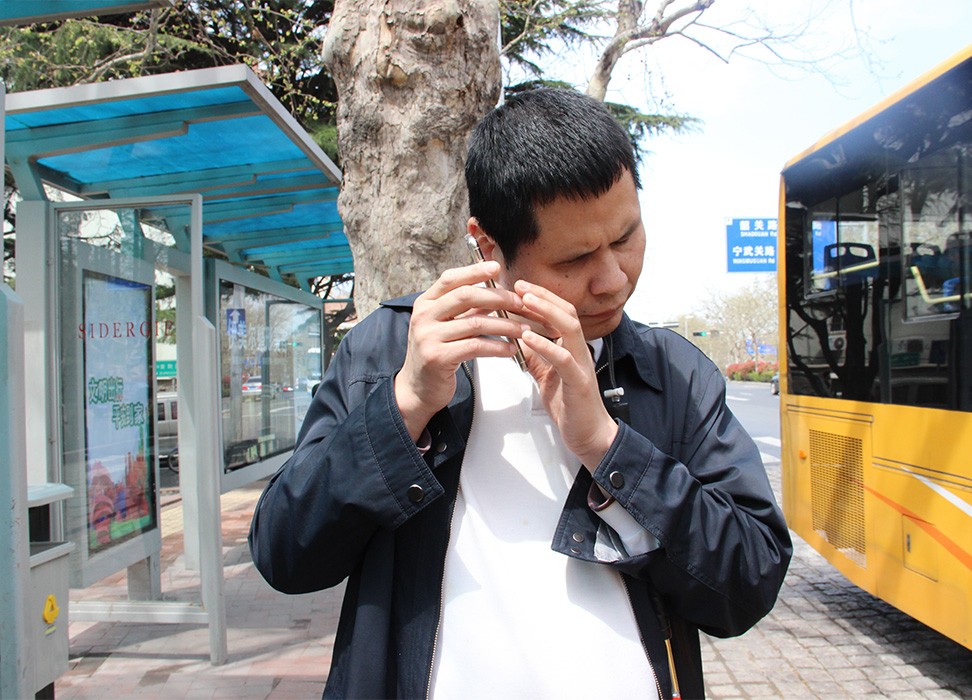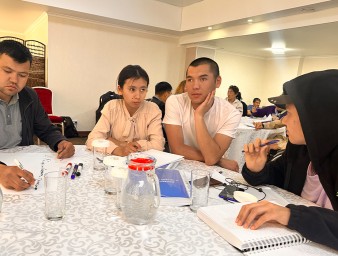Humanity should get the best from AI, not the worst - UN disability rights expert
09 May 2022

Artificial intelligence has fundamentally altered the terms of existence for human beings, said UN Special Rapporteur on the rights of persons with disabilities Gerard Quinn.
“New technologies can be of enormous benefit to persons with disabilities and drive the search for inclusive equality across a broad range of fields such as employment, education and independent living,” he said. “However, there are many well-known discriminatory impacts.”
Quinn made his statement during a presentation of his report to the Human Rights Council. In his report, Quinn defined artificial intelligence, or AI, as machines made to work “in the same or a similar way to humans, only faster, better and more reliably and, theoretically, without human bias.”
While there is growing awareness of the human rights challenges that these new technologies can pose, Quinn said the discussion should shift to focus on the specific challenges these new technologies pose to the rights of people with disabilities, as provided by the Convention on the Rights of Persons with Disabilities. These include the rights to privacy, autonomy, education, employment, health, independent living, participation
AI enabled systems have had positive impacts on the lives of people with disabilities. Quinn pointed out that, “blockages that we formerly thought of as insurmountable are suddenly scalable.”
These include assistive technology that improve the mobility of blind individuals. Adaptive learning platforms also provide personalised learning experiences tailored to the specific needs of students with disabilities. Further, AI powered robots and other tools provide home-based care and other assistance, allowing people with disabilities to live independently.
However, AI is made ‘smart’ through a process of machine learning dependent on a set of training data, or ‘algorithms’, that often includes “data shaped by prior human decisions and value judgements that may be faulted on many grounds,” Quinn said.
AI tools can still carry human biases and be exclusionary towards people with disabilities as a result, the report states. One example was in employment, where recruitment processes increasingly use algorithms to filter out candidates.
“The predicates that underpin the algorithms that drive Artificial Intelligence can reflect and embed ableist assumptions (and indeed ageist assumptions). Disability can be ‘seen’ by the technology as deviant and therefore unwelcome,” Quinn said. “[Persons with disabilities] may be ruled out of consideration for employment without ever considering their merits and whether a ‘reasonable accommodation’ might assist in enabling them to perform the essential functions of a job.”
In his report, Quinn proposes a way forward to realize the practical benefits of AI for people with disabilities by placing their human rights at the centre of the debate around new technologies.
In other recommendations, he urged States to include disability in their artificial intelligence strategies and to continue applying their obligation of ‘reasonable accommodation’, as well as explicitly taking disability into account when purchasing AI products and services.
“Most importantly, we call for a new space – a collaborative space – between the corporate sector, Government and civil society – to work through and realize the positive benefits of the technology and to take active steps to reverse some its known negative impacts and to avoid such impacts into the future,” he added.
“Otherwise, the ‘furthest left behind’ will simply have no chance to catch up. Given the promise of the technology, this would be a tragedy for humanity.”



